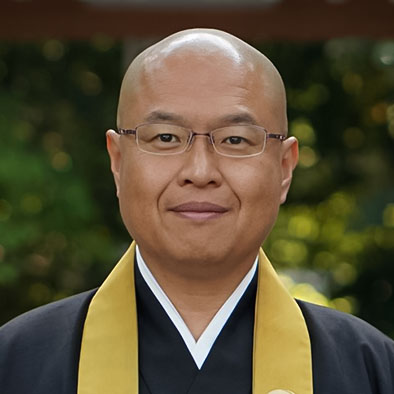パネリスト・モデレーター紹介

大西 龍心 師
Ven. Onishi Ryushin
第5セッション
「生命科学と宗教」
パネリスト
経歴
1966年生まれ。神戸大学文学部在学中に高野山にて修行、阿闍梨となる。現在は大阪府堺市観音院(高野山真言宗)の住職。「宗派を超えてチベットの平和を祈念し行動する僧侶・在家の会(略称:スーパーサンガ)」幹事。
梗概
Onishi Ryushin, born in 1966, trained as a monk at Mount Koya and became an acharya while studying literature at Kobe University. He currently serves at the Kannon-in Temple in Sakai, Osaka (of Koyasan Shingon Buddhism). He is also an organizer for the "The Association of Japanese Buddhists for Tibet" (a.k.a. Super Samgha).
学問の知的探究心を止めることはできないが、生命科学という学問が解明、観察の学問から技術、操作の学問へと移り、そこに危機感を感じる人も多い。また前提となる生命についても文化的背景や宗教観により、例えば人間と動植物の生命が同価値であるかという問題、出生前診断や安楽死といった生命を操作する問題などにおいても民族間で微妙な差異がある。
科学が「わからないことを減らし、できることを増やしていく」ものだとすれば、宗教は「できるけどやらない」という抑制力を養うものであるのかもしれない。その抑制力はタブーという人類独特の態度も大きく関わっており、それは科学の進歩を妨げてきた反面、研究者の心を律し一方で人々の不安を取り除くことに役立ってきたはずである。
科学が進歩し、思い通りにできることが増えてきたということが、逆説的に苦を増やすことになっているというのは、仏教が指摘してきたことである。この苦と個人的にはどう付き合い、社会的にはどう受け入れていくかを考えてみたい。
Abstract
While it is impossible to stop the intellectual curiosity of the sciences, many people feel a sense of anxiety as the biological sciences in particular shift from the study of investigation and observation to that of technology and manipulation. There are also subtle differences between peoples based on their cultural and religious differences. This is seen, for example, in issues of the manipulation of life, such as prenatal diagnosis or euthanasia.
If science is that which seeks to "reduce that which we don't know and increase that which we do know," religion is that which develops people's sense of self-control by ascertaining that which "we can do, but should not." On one hand, that self-control that is closely related to the unique human sense of "taboo" has stood in the way of scientific progress. On the other hand, it must have played a useful role in alleviating anxieties in people, while governing the wills of researchers.
Buddhism has always pointed out the fact that scientific progress and the increased ability to do things as we like counterintuitively increases suffering. We should consider how to handle this suffering on a personal level and how to take on this suffering as a society.
